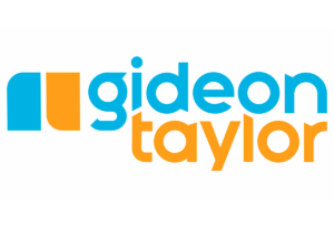When Less is More & How to Get There

EXECUTIVE SUMMARY – BYU and Gideon Taylor Implement PeopleSoft Managed Services
- GT reduced support and development staff by 50% (from 12 staff members to 6 consultants) while retaining quality and reducing response times.
- Optimized BYU’s existing Service Now ticketing system to prioritize and track all user requests.
- Bi-weekly service reviews between GT and BYU program leadership ensure effective communication, transparency, and service level compliance.
- Unused service hours roll forward to maximize value and manage capacity.
Brigham Young University (BYU), a renowned institution with a diverse global presence, embarked on a transformative journey to transition two critical PeopleSoft environments (Finance and Human Resources) to Workday. This transition posed significant challenges, including the reassignment of 12 experienced employees from PeopleSoft administration. Seeking to optimize resources and maintain quality, BYU partnered with Gideon Taylor (GT), a trusted PeopleSoft Managed Services provider.
Key Questions and Concerns:
BYU had several questions and initial concerns about this partnership:
- Would Gideon Taylor provide the same level of support as an in-house team?
- How would communication and resource allocation be managed?
- What were the security risks associated with off-site management?
How did we do?

Gideon Taylor’s Approach:
To alleviate these understandable concerns, Gideon Taylor was committed to not only replace BYU employees but to enhance support for all three PeopleSoft pillars with fewer resources. They currently have six team members dedicated to BYU’s PeopleSoft Managed Services. GT follows a collaborative approach when working with organizations like BYU to develop and implement systems based on the unique needs of the client vs. a “one-size-fits-all” model.
Support Transformation:
Before the partnership, BYU used ServiceNow to log incidents and interact directly with developers. Gideon Taylor introduced a ticketing process, ensuring that every support request was logged systematically. This included phone calls, emails, and chats. Each functional department became a distinct ServiceNow product group, streamlining ticket categorization and enabling swift communication via Teams channels.
Transparent Communication:
To address BYU’s concerns about transparency, Gideon Taylor established regular meetings with BYU management, fostering one-on-one feedback and information sharing. Daily phone calls and active Teams chats ensured comprehensive awareness of ongoing issues. Incidents were used as training opportunities to benefit the entire organization.
Agile Processes:
Gideon Taylor adopted Agile processes, holding sprints every two weeks for each PeopleSoft pillar. Prioritization was driven by client feedback, enhancing alignment with user needs and efficient resource allocation.
Collaboration of Trust:
Gideon Taylor provided comprehensive system management for all three PeopleSoft Pillars, including updates, issue tracking, and reporting. The GT team successfully streamlined communication, reduced BYU’s workforce from twelve to six, and provided access to top-notch PeopleSoft expertise.
Conclusion:
The partnership between Gideon Taylor and BYU exemplifies how effective collaboration and innovative solutions can lead to substantial improvements in system management, resource optimization, and cost reduction. If your organization seeks a trusted partner to manage PeopleSoft systems and enhance operational efficiency, Gideon Taylor is well-equipped to drive success.

The full story…
Brigham Young University in Provo, Utah is no stranger to the challenges and opportunities that come with growth. With almost 35,000 undergraduate students enrolled representing over 100 different countries and a large and complex worldwide outreach, BYU has made innovation one of the pillars of its institutional mission.
Recently, leaders in BYU’s IT (Information Technology) Administration Department began planning a transition of two of their PeopleSoft environments (Finance and Human Resources) to Workday. This complicated process would include reassigning 12 experienced full-time employees away from PeopleSoft administration. Understandably, this pending transition caused some concern within department leadership. Also, rather than adding twelve new team members to replace those being reassigned, BYU wanted to reduce staffing and resources for their PeopleSoft environments without a decrease in quality control and transparency. They approached Gideon Taylor, a leader in PeopleSoft Managed Services, to discuss a possible partnership and shared the following list of questions and concerns:
- Did Gideon Taylor have the expertise in-house to provide what BYU was asking for?
- How would communication be handled? Who would manage it and make sure nothing is lost? Also, who would make sure resources are properly allocated?
- What were the security risks associated with off-site management by non-BYU staff and how would security be handled?
One of the additional questions BYU asked Gideon Taylor was a simple but significant one: “How many full-time employees are actually needed to support each of our PeopleSoft environments?” To help answer this question, they provided GT with a functional breakdown of everything they needed to move forward with an agreement, including existing PeopleSoft services, patches & fixes, tax updates, upgrades and PUM updates, in addition to fully supporting ongoing PeopleSoft users. In response, Gideon Taylor indicated they weren’t interested in just replacing BYU employees with GT employees but instead, they intended to provide better support for all three PeopleSoft pillars with fewer resources. As of right now, Gideon Taylor has six team members assigned to BYU’s PeopleSoft Managed Services.
Here’s the story of how Gideon Taylor succeeded and how they can help organizations like yours achieve comparable results.
Support

Before working with Gideon Taylor, BYU was using the ServiceNow system to log incidents in addition to reaching out directly to developers who would then address the issue. The Gideon Taylor team proposed a ticketing system where every support request was logged in to ServiceNow as either an incident or enhancement. Whether that request came as a phone call, an email, or as a chat, GT would immediately create a ticket. Sometimes they still see requests outside of the new process, but in response, they now ask if a ServiceNow ticket has been issued and if not, then one is created.
Another innovation that Gideon Taylor has implemented for BYU is to establish each of their different functional departments (there are over 20) as a distinct ServiceNow product group with unique needs. This allows GT to categorize something like HR as a product so that items like payroll, staff, and student recruiting, hiring, etc. are in one location. This means that there are multiple corresponding products now affiliated with each pillar, which ensures that tickets are seen by the right team member at GT. Additionally, Teams channels have been created which enable quick communication to an entire affected group (i.e., if something is going to be updated or be offline, etc.)
Communication

As mentioned, one of BYU’s main concerns with moving away from having an internal PeopleSoft support team was losing transparency. Gideon Taylor has made a great effort to address this. Twice each month, BYU management and senior leadership at GT meet to review the contract, used and unused service hours that can be moved to the next month, and any other items that BYU wants to discuss. Gideon Taylor’s Project Manager also has a bi-weekly call with BYU’s primary sponsor. They discuss any current needs and issues, upcoming tasks, changes, and other important items. This has added a layer of one-on-one feedback that has proven invaluable. There are also daily phone calls between BYU and GT team members and the Teams chat is very active. GT also uses any incidents as part of their training so that others within the organization can benefit from what is being learned. All these elements were implemented to ensure that if one person knows about an issue, everyone knows about it.
Happily, going from twelve full-time BYU employees to six Gideon Taylor team members now supporting them hasn’t led to any decreases in support or functionality. Just the opposite, in fact. New processes have been created to identify and address problems and quickly develop and implement solutions. The initial agreement was implemented in February 2022, but since then, BYU has discovered areas where they needed additional resources and GT has quickly scaled to meet those needs. The process GT built around consistent use of ServiceNow is also providing more transparency for BYU to see how much time is being spent under each pillar.
Gideon Taylor has also adopted the Agile processes to support BYU’s needs. This includes standing sprints every two weeks for each PeopleSoft pillar and deciding how many Agile “story points” are needed for each pillar at the beginning of each sprint. GT then looks at these with users during each sprint review to assess what happened or didn’t happen during the last sprint and what is coming in each new one. Additionally, GT provides a report for BYU users to access in Teams where they can prioritize incident response, enhancements, and what their highest priorities will be in the upcoming sprint. This has been a great way for GT to understand what the client’s status is, so they are working on what matters most to each of the unique user groups. In contrast, prior to this agreement, if someone from payroll had told a developer they needed something built in the next week, they would drop other work to complete the request without following a process to determine if doing so was the best use of resources. With this new ranking system in place, GT has 100% visibility and a highly proactive method to effectively meet BYU’s needs.
Another discovery Gideon Taylor has made is that many of BYU’s users have become subject matter experts, which sometimes leads to those SMEs being removed from their assigned functional group to provide support elsewhere, which can create a gap in user understanding of some PeopleSoft functions. If those less-experienced users report a problem that in fact is just an instance of not understanding how something should work, GT has a method in place to quickly address and resolve issues. Rather than taking an incident report at face value, GT provides a review to validate what support is needed and then assigns resources accordingly.
A Collaboration of Trust

Gideon Taylor provides full system management for all three of BYU’s PeopleSoft Pillars. Additionally, they handle People Tools and PUM updates, support for production, issue tracking and repair, and all other required reporting. GT has helped BYU to improve communication and streamlined incident and enhancement tracking while reducing their FTEs from twelve to six. BYU also now has access to best-in-class PeopleSoft expertise from Gideon Taylor’s Enterprise Services team. This means they are seeing unprecedented results and increased scalability while reducing their overall management expenses.
If your organization is looking to collaborate with a trusted, industry-leading partner to help manage your PeopleSoft systems, Gideon Taylor is committed to helping you succeed.






